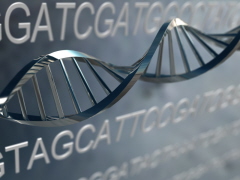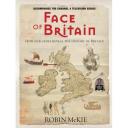Update: The podcast was updated to add the last 5 minutes of the interview (after the commercial break). As a result, the link to the podcast changed. I apologize to everyone who tried the old link – it should work fine now.
Market News First, a website dedicated to microcap markets, recently interviewed the CEO of DNAPrint Genomics, Inc.”Richard Gabriel, President and CEO of DNAPrint Genomics, Inc. spoke with MN1.com’s Rich Hancock on April 26th, 2007 about the Company’s innovative and cutting edge technology that aids law enforcement crime scene investigation (CSI) forensics, consumer applications in genealogy ancestry/genetic testing and its pharmaceutical and diagnostic applications. Mr. Gabriel highlights the Company’s recent advances in its pharmaceutical and diagnostic, and talks about its successes in both law enforcement and the growth market of DNAPrint’s consumer oriented products.”
 1.Who is GINA?
1.Who is GINA?